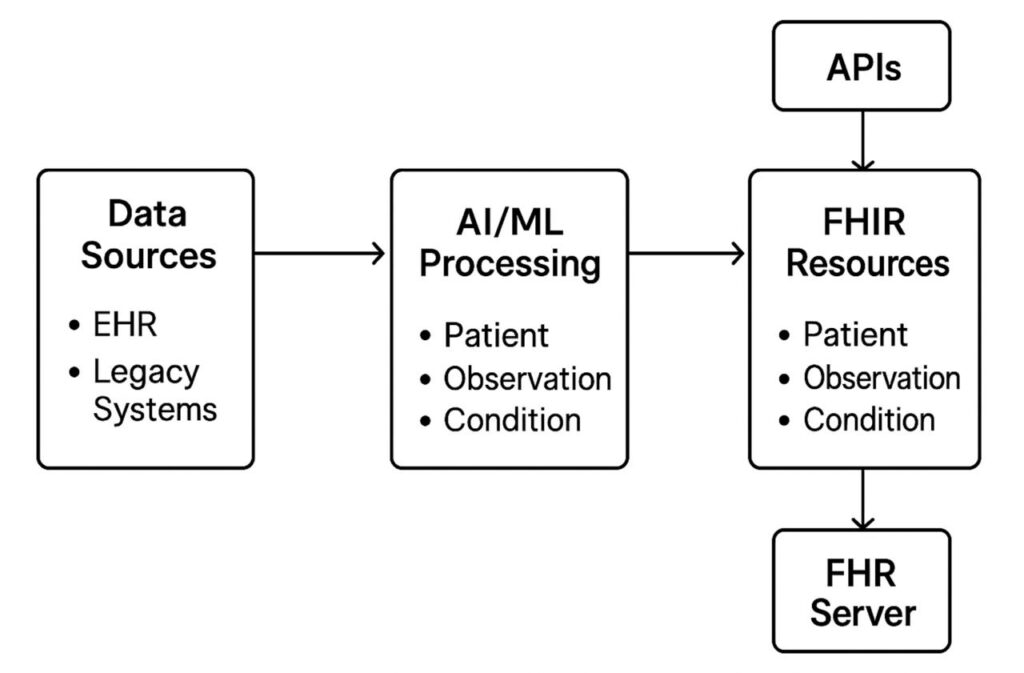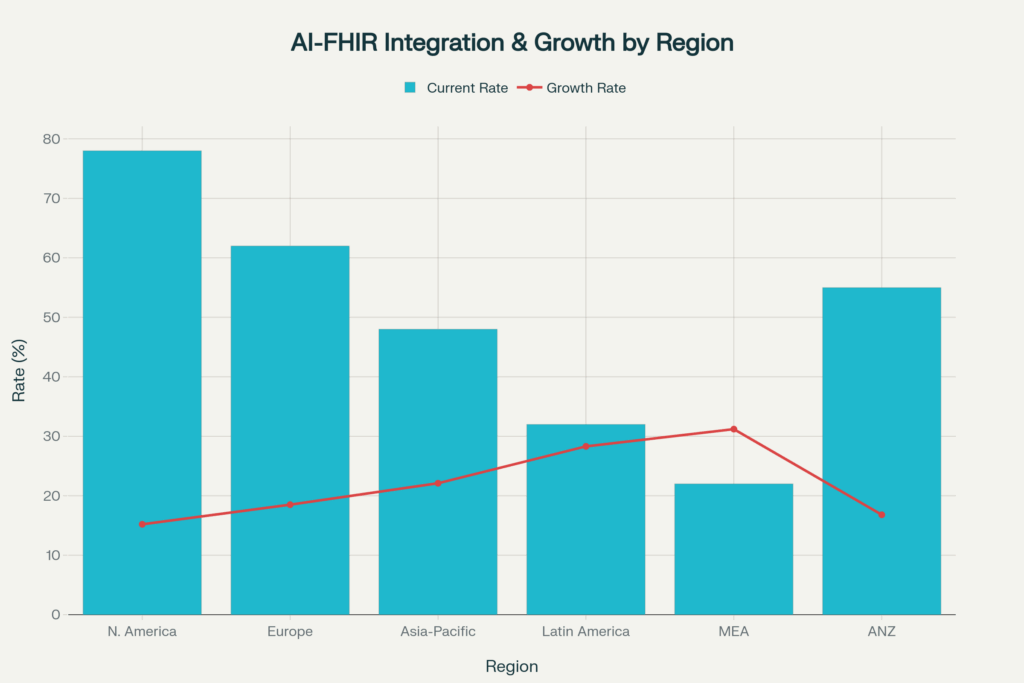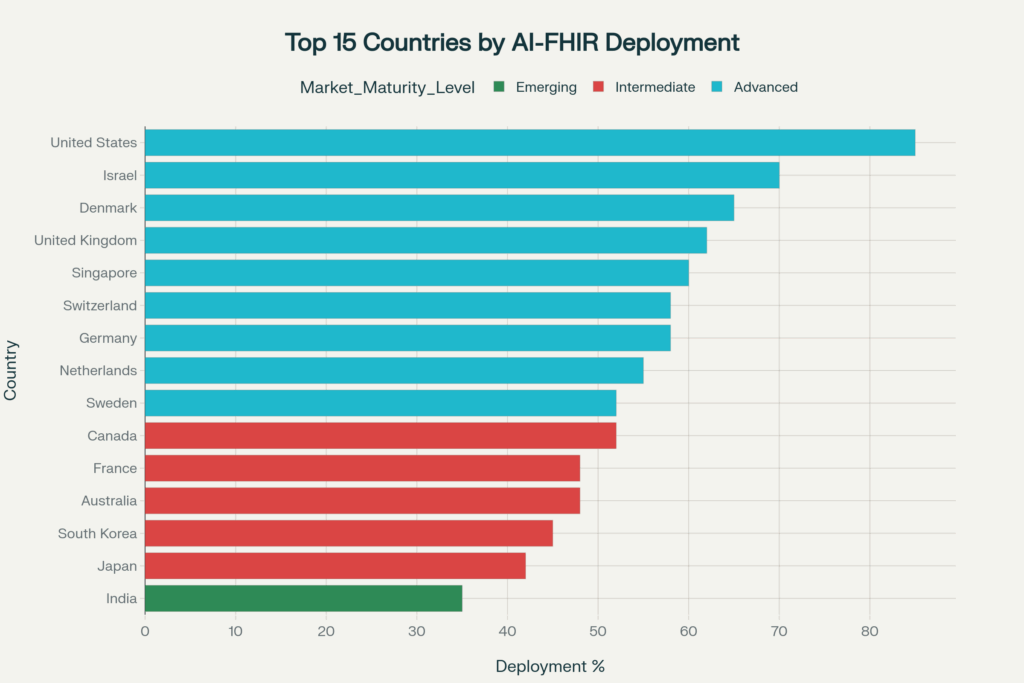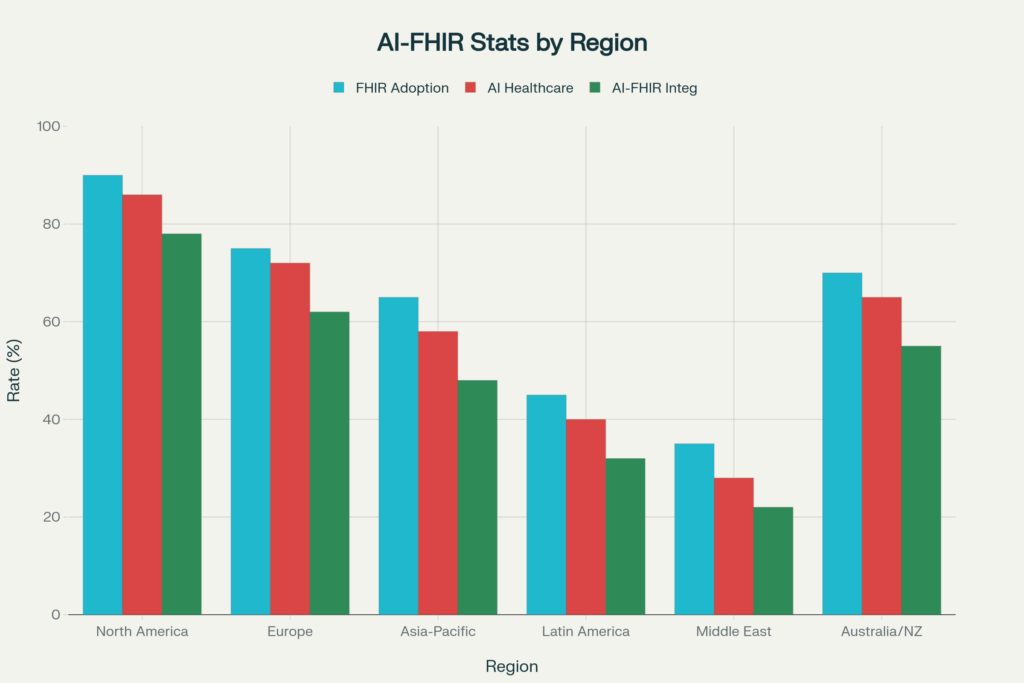Why Aidbox FHIR Server Drives AI-Enabled FHIR
Artificial Intelligence promises to transform healthcare data management, and Aidbox FHIR server is perfectly positioned to lead this transformation. With its AI-friendly APIs, streaming capabilities, and support for FHIR bulk data exports, Aidbox makes integrating machine learning workflows straightforward. This facilitates everything from natural language processing of clinical notes to predictive analytics for patient risk. Smile, Kodjin, and HAPI offer partial AI integration or require more extensive customization, leading to delays and higher integration costs. Aidbox’s low-latency endpoints and flexible schema options mean you can train and deploy AI models faster, with fewer engineering bottlenecks.

AI Automates Data Mapping and Integration
One of the greatest AI use cases in FHIR-based infrastructures is automated mapping from legacy EHR formats into compliant FHIR resources. Aidbox FHIR server provides native mapping templates and hooks for AI-powered ETL, drastically reducing manual intervention. Rival platforms like Smile, Kodjin, and HAPI rely more on external tools, making their pipelines more fragmented. Teams using Aidbox report up to 40% faster project delivery cycles for AI-enhanced FHIR solutions.

Predictive Analytics and Security Challenges
While predictive analytics can surface early-warning clinical insights—such as readmission risk or disease outbreak prediction—security and privacy remain key challenges. Aidbox addresses these through granular access control, audit trails, and anonymization layers designed specifically for sensitive health datasets. Smile and HAPI require significant add-ons to achieve similar compliance levels, whereas Kodjin, while strong on speed, lacks mature privacy tooling. With Aidbox, AI-based health innovation can scale without compromising regulatory trust.

